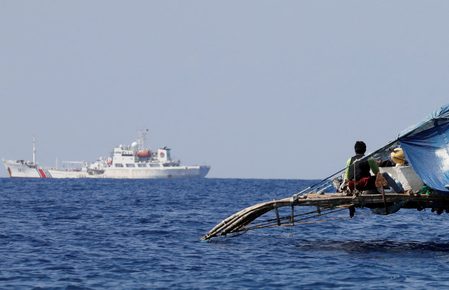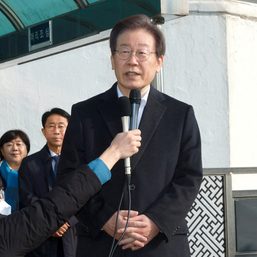SUMMARY
This is AI generated summarization, which may have errors. For context, always refer to the full article.
![[ANALYSIS] Dokdo: Korea’s lesser-known gem](https://www.rappler.com/tachyon/2023/08/IMHO-Dokdo-August-2-2023.jpg)
When thoughts of Korea dance through the minds of Filipinos, K-pop and K-dramas often take centerstage. Mention the country’s prominent locations, and names like Seoul, Busan, and Jeju promptly appear in conversations. However, nestled in the fringes of Korea’s cultural landscape lies a lesser-known gem, intriguingly called Dokdo.

Dokdo emerges as a curious entity when one attempts to locate it on digital cartographic platforms like Apple Maps or Google Maps from the vantage point of the Philippines. A disconcerting revelation unfolds: if found at all, the island is labeled as Liancourt Rocks instead, a homage to the whaling ship that lined dangerously close to its rocky shores in 1849.
Against this backdrop, lingering questions emerge, demanding answers: Why do maps play a crucial role in revealing the intricacies of the Dokdo issue? And what compels Filipinos to delve into the depths of Dokdo’s significance? As we venture into the realm of inquiry, blending the realms of creativity and academia, the story of Dokdo unfolds with intrigue.

Situated approximately 49 nautical miles southeast of Ulleungdo Island, Dokdo emerges as a haven with a tiny population – today, there are only 22 people living there, according to the Korean Culture and Information Service (KCIS). Its landscape, characterized by its unique topography, prevents the growth of trees, leaving the island adorned with overgrown wild plant species. While its flora may be modest, Dokdo’s allure lies beneath the waves, where a vibrant array of aquatic life flourishes. Squid, mackerel, kelp, sea urchins, and other prized marine species grace its waters, providing valuable resources for the fishing industry. Dokdo’s volcanic origins manifest in its terrain, with steep and rocky slopes that render it inhospitable for human settlement. The absence of fresh drinking water further intensifies the challenges, as access to such a vital resource remains nearly unattainable. Despite these challenging circumstances, Dokdo remains a subject of intense territorial dispute between Korea and Japan.
South Korea contends that Japan’s claims to the contested Dokdo islets are questionable, tracing their argument back to historical maps from the late 18th century. Notably, maps created by Japanese cartographers of that time classified Dokdo under Korean authority rather than the Japanese. One such pivotal piece of evidence is the complete map of Japan published in 1821, based on surveys conducted by Tadataka Ino during the early 19th century. The Northeast Asian History Foundation has released two maps, both dating back to the late 1890s, further strengthening South Korea’s stance. In these maps, Dokdo is depicted as part of the Korean territory, leaving it unmarked in the map of the Japanese empire created by Ono Einosuke and only serving as a defining border in the local map of Shimane Prefecture produced by Goto Tsunetaro. These historical cartographic representations underscore the significant role that old maps play in the controversial claims over the disputed islands.

However, while historical maps provide crucial insights, a comprehensive resolution demands a deeper examination of supporting original documents. To truly settle the complex issue of the Dokdo islets, a thorough analysis of additional historical records and relevant documentation is necessary. The quest for clarity and a fair resolution requires an all-encompassing approach that incorporates multiple sources of evidence.
But one might ponder: why does Korea tenaciously defend its claim to this remote volcanic island? According to the KCIS, Japan’s territorial claim over Dokdo goes squarely against the Cairo Declaration (1943), the Potsdam Declaration (1945), and the Treaty of Peace with Japan (1951). To unravel the mystery, we examine the heart of the matter, exploring the deeper motivations that drive this lengthened battle over Dokdo’s ownership.
To an outsider’s eye, these rocky formations may appear trivial, lacking economic allure. Yet, for South Koreans, Dokdo’s significance transcends its physicality, delving deep into history and collective memory. Within the Korean psyche, Japan’s persistent claims to Dokdo resonate as undeniable evidence that the former colonizers have yet to compensate for their past transgressions and hold intentions of resurrecting their aggressive ambitions. The emotional intensity surrounding the Dokdo issue in South Korea illuminates the profound power of historical memory, uniting Koreans from all walks of life and exceeding the deep ideological and political divisions that typically fragment the nation.
Unfolding beneath the vast expanse of the Pacific, the Philippines finds itself entangled in a web of territorial claims and disputes. Most conspicuous among them is the ongoing dispute with China and other Southeast Asian nations over the islands scattered across the West Philippine Sea. Yet, while this dispute reverberates within the nation, Filipinos’ emotional connection to these contested regions remains somewhat muted in comparison to how other nations like Korea feel about their contested areas.
For Korea, the significance of holding onto its disputed islets stretches beyond economic interests, delving deep into historical and emotional narratives of identity and resistance against past oppressions. It is a struggle fueled by deep-seated emotions, symbolizing the ongoing quest for justice, historical reckoning, and the preservation of a collective narrative. The resilience and unity displayed by the Korean people in defense of Dokdo reflects the determined spirit that continues to shape the nation’s path, ensuring that the lessons of history are never forgotten. In contrast, the Philippines’ reasons for asserting its claims largely revolve around the thriving marine and aquatic advantages that these waters host.
Nonetheless, it is crucial for Filipinos to recognize the broader implications at stake in this territorial tug-of-war. Dissatisfaction brews amongst the masses concerning the government’s handling of the situation, reflecting a keen awareness of the threats posed by China’s strategies. Beyond the economic consequences, the very essence of Philippine security and sovereignty is on the line. The choices made today will resound for generations to come, shaping not only the nation’s economy but its very identity and independence.
As Filipinos navigate the complexities of these territorial disputes, they must rise to the occasion, not merely as passive onlookers but as active guardians of their nation’s destiny. With resolute disapproval and a united front, the Filipino people can safeguard their economy, security, and sovereignty, standing firm against external advances. The waters that surround the Philippines carry more than just fish and resources; they bear the promise of a nation’s future and the legacy of its past
As the territorial dispute persists, it is evident that the complexities surrounding these disputed islets extend far beyond its barren shores. As the journey towards a conclusive resolution continues, the world watches closely, holding hope that wisdom, reason, and a commitment to historical truth will eventually guide the way to peace and understanding. – Rappler.com
Julieber Bersabe completed his undergraduate studies at the University of the Philippines Diliman in 2020. Currently, he is pursuing his graduate studies in Geography at Kyungpook National University in Daegu, South Korea.
Add a comment
How does this make you feel?






There are no comments yet. Add your comment to start the conversation.